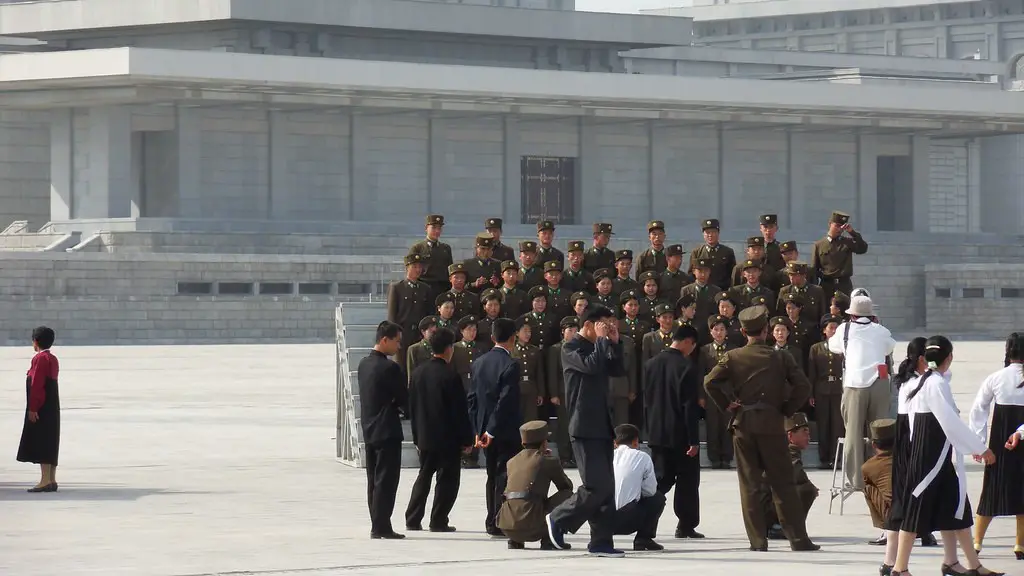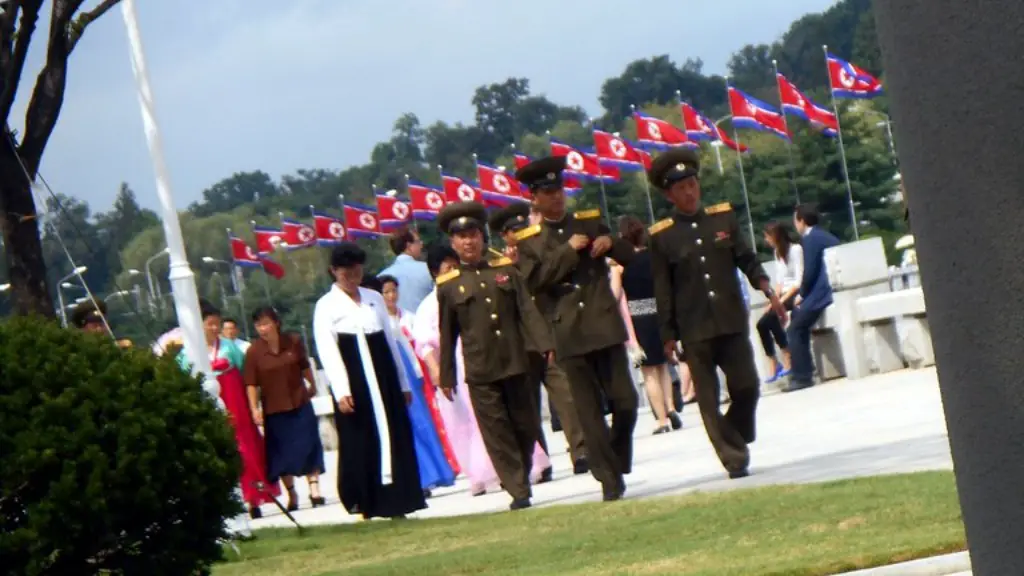Background
Over the last few decades, North Korea has become an increasingly hostile and unpredictable international actor. Its nuclear ambitions and efforts to engage in cyber-warfare have alarmed the international community and the potential for conflict has grown substantially. North Korea has a long history of provocations, including threats to South Korea and the United States. Since the 1990s, North Korea has been known for issuing its own threats. It has not only threatened a nuclear attack but also threatens to continue developing and expanding its nuclear capabilities.
Why are North Korea Threatening Us?
North Korea has a reputation for its belligerent and provocative behavior and its nuclear ambitions. North Korea’s actions, however, are motivated by a number of internal and external factors. In particular, the regime is driven by an emphasis on self-preservation, yet also by a need to remain relevant on the international stage. Domestically, the regime has to maintain its control over the people, which is why its threats are often exaggerated. Externally, North Korea must invoke fear in order to gain respect from the international community and credibly deter adversaries.
Threats from North Korea
In recent years, North Korea has issued a variety of threats to its neighbours and the United States. These threats range from verbal threats and hostile rhetoric to more tangible provocations such as cyber-attacks and cyber-espionage. In 2017, North Korean state media reported that an intercontinental ballistic missile test was successful. This test demonstrated North Korea’s potential reach and ultimately reinforced the notion that any action taken by the US would very likely be reciprocated.
International Response to North Korean Threats
In the wake of increasing North Korean threat, the international community has been scrambling to find a solution and prevent a potential armed conflict. To confront this challenge, the United Nations has imposed multiple rounds of sanctions on North Korea and passed a number of UN Security Council Resolutions. The US has also taken a number of steps to isolate North Korea, such as increasing sanctions and applying diplomatic pressure. In spite of these efforts, North Korea remains defiant and has continued to pursue its nuclear ambitions.
North Korea and the US Nuclear Posture
The United States government has often relied on a “strategic deterrence” approach as a means of responding to North Korea’s nuclear threats. This approach includes the employment of nuclear weapons as a deterrence to aggression. This policy, however, has been criticized as an escalatory measure and viewed by some as a military provocation. Instead, many experts have advocated for a more diplomatic and peaceful resolution to the issue, leaving North Korea and the US to come to some kind of accord.
Risks and Consequences of a Nuclear Conflict
If a nuclear conflict were to break loose between North Korea and the US, it would likely have devastating consequences both regionally and worldwide. The US would be subject to significant economic losses, while North Korea’s already-stressed population would be hit hard. Radioactive contamination and nuclear winter could also negatively impact food supplies and other resources, leading to mass starvation and loss of life.
Negotiating a Political Solution
Given the risks and potential costs of a nuclear conflict, diplomatic dialog is still viewed as the best option for resolving the North Korean crisis. Such dialog should focus on finding a mutual agreement and a way for the two sides to peacefully coexist. The US and North Korea could also discuss approaches for mitigating the risks of nuclear weapons, such as verifiable denuclearization and a pledge of no first use of nuclear weapons.
Protocol to Ensure Peaceful Coexistence
The creation of a protocol between the United States and North Korea could potentially pave the way for a more peaceful relationship. Such a protocol could focus on measures to prevent military confrontations and establish a framework for collaboration. In addition, regular meetings between the two sides should be encouraged in order to ensure ongoing communication and collaboration. Such an approach could help to ensure long-term peace and stability.
Economic Support and Sanctions
The US and other countries have used economic sanctions as a tool to pressure North Korea into compliance. Sanctions have been seen as an effective mechanism for deterring North Korea’s nuclear ambitions. At the same time, however, economic sanctions can have adverse effects on North Korea’s economy and could lead to further destabilization of the region. For this reason, economic support should also be considered in order to improve the livelihoods of North Koreans and reduce tensions.
Impact of Social Media
The widespread use of social media has enabled North Korea to spread its’ message and also to respond to hostile rhetoric from other countries. As a result, North Korea has been able to create an image for itself domestically and internationally. This image has, however, often been a negative one, with North Korea seen as an aggressor and a threat. Social media has thus given North Korea a platform to project its threats and hostile image to a much wider audience.
Conclusion of Neutral Relations
Given the risks of war and the potential devastating consequences, the best option would be to seek a peaceful resolution to the current conflict. The US should continue to work with its allies to deescalate the situation, while simultaneously engaging in diplomatic dialog with North Korea. Such an approach could potentially lead to a more peaceful coexistence and could potentially pave the way for a more neutral relationship between these two countries.


